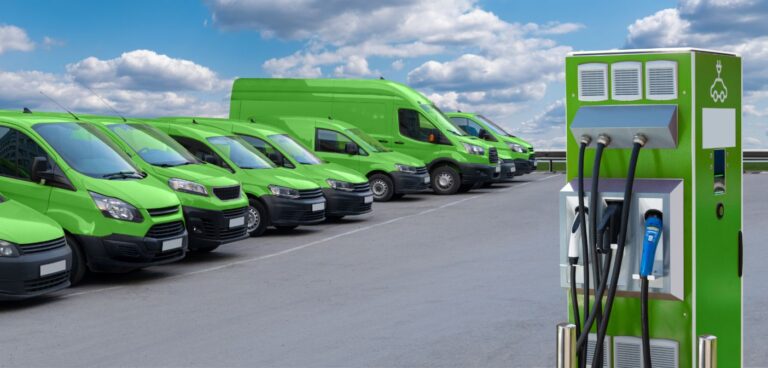Companies have up to three years to substantially transition fleet operations to low carbon or risk reputational damage in the wake of COP26 pledges, according to a new report from PwC.
The Fleets ahead! Emerging pathways to decarbonise UK fleets report highlights that the transport sector is responsible for around 30% of the UK’s total emissions. Of the transport share, 90% of emissions are generated by taxis, cars, heavy goods vehicles and vans, with over six million commercial vehicles contributing to this.
PwC added as more companies announce net zero pledges after COP26, decarbonising vehicle fleets is a critical component in achieving emission goals.
The report forecasts that the cost of commercial EVs will be on equal footing with petrol and diesel counterparts by 2024. It suggests that while those who act too quickly might miss out on cost savings, the greater risk is for those who act too slowly in an increasingly emissions-conscious market, as they could be judged harshly by consumers who have made the transition to electric.
While some fleet managers are following a decarbonisation pathway, PwC’s research revealed how they are meeting emission milestones. It suggested many are not following a structured approach and this is slowing down the decarbonisation process, and sometimes causing unnecessary complications.
Matt Alabaster, PwC strategy partner and co-author of Fleets Ahead, said: “Electrifying your vehicle fleet is not just about buying the vehicles – it requires new thinking about energy procurement, about how to access the charging infrastructure needed, and about what skills and capabilities you need to manage and operate the fleet.”
The report outlines a number of focus areas that could define the future of the market. It said public charging provision is key, with councils mandated by the government to do more to accelerate EV charging provision in public spaces.
From those organisations interviewed, 66% believe councils have a critical role to play in driving this transition, with almost half of fleet drivers stating they have no charging facilities at home.
Additionally, the report suggests that emerging alliances such as EV1002 with OEMs could not only better inform industry requirements but also create opportunities to co-develop new vehicles.
PwC’s report also stresses that the industry must address choice and capacity. It states despite there being over 4.6 million vans on the road, of which 3.5 million are in fleets, the options available to fleet managers still remain two to three years behind that of the consumer car market.
Furthermore, current charging infrastructure is not designed for larger electric vans, making on-street charging more difficult, the report added.
It also found that options for decarbonising heavy vehicles are even less developed, with no commonly agreed pathway. While hydrogen is seen as a long-term solution, the lack of refuelling options across the UK and the lack of low carbon hydrogen supply creates a barrier to adoption. Biogas is seen as an interim solution but again, infrastructure and manufacturing capacity and range of vehicles available to the industry is key, the report concluded.





